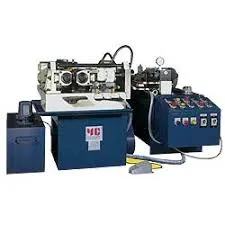
-
 Afrikaans
Afrikaans -
 Albanian
Albanian -
 Amharic
Amharic -
 Arabic
Arabic -
 Armenian
Armenian -
 Azerbaijani
Azerbaijani -
 Basque
Basque -
 Belarusian
Belarusian -
 Bengali
Bengali -
 Bosnian
Bosnian -
 Bulgarian
Bulgarian -
 Catalan
Catalan -
 Cebuano
Cebuano -
 Corsican
Corsican -
 Croatian
Croatian -
 Czech
Czech -
 Danish
Danish -
 Dutch
Dutch -
 English
English -
 Esperanto
Esperanto -
 Estonian
Estonian -
 Finnish
Finnish -
 French
French -
 Frisian
Frisian -
 Galician
Galician -
 Georgian
Georgian -
 German
German -
 Greek
Greek -
 Gujarati
Gujarati -
 Haitian Creole
Haitian Creole -
 hausa
hausa -
 hawaiian
hawaiian -
 Hebrew
Hebrew -
 Hindi
Hindi -
 Miao
Miao -
 Hungarian
Hungarian -
 Icelandic
Icelandic -
 igbo
igbo -
 Indonesian
Indonesian -
 irish
irish -
 Italian
Italian -
 Japanese
Japanese -
 Javanese
Javanese -
 Kannada
Kannada -
 kazakh
kazakh -
 Khmer
Khmer -
 Rwandese
Rwandese -
 Korean
Korean -
 Kurdish
Kurdish -
 Kyrgyz
Kyrgyz -
 Lao
Lao -
 Latin
Latin -
 Latvian
Latvian -
 Lithuanian
Lithuanian -
 Luxembourgish
Luxembourgish -
 Macedonian
Macedonian -
 Malgashi
Malgashi -
 Malay
Malay -
 Malayalam
Malayalam -
 Maltese
Maltese -
 Maori
Maori -
 Marathi
Marathi -
 Mongolian
Mongolian -
 Myanmar
Myanmar -
 Nepali
Nepali -
 Norwegian
Norwegian -
 Norwegian
Norwegian -
 Occitan
Occitan -
 Pashto
Pashto -
 Persian
Persian -
 Polish
Polish -
 Portuguese
Portuguese -
 Punjabi
Punjabi -
 Romanian
Romanian -
 Russian
Russian -
 Samoan
Samoan -
 Scottish Gaelic
Scottish Gaelic -
 Serbian
Serbian -
 Sesotho
Sesotho -
 Shona
Shona -
 Sindhi
Sindhi -
 Sinhala
Sinhala -
 Slovak
Slovak -
 Slovenian
Slovenian -
 Somali
Somali -
 Spanish
Spanish -
 Sundanese
Sundanese -
 Swahili
Swahili -
 Swedish
Swedish -
 Tagalog
Tagalog -
 Tajik
Tajik -
 Tamil
Tamil -
 Tatar
Tatar -
 Telugu
Telugu -
 Thai
Thai -
 Turkish
Turkish -
 Turkmen
Turkmen -
 Ukrainian
Ukrainian -
 Urdu
Urdu -
 Uighur
Uighur -
 Uzbek
Uzbek -
 Vietnamese
Vietnamese -
 Welsh
Welsh -
 Bantu
Bantu -
 Yiddish
Yiddish -
 Yoruba
Yoruba -
 Zulu
Zulu
Types and Manufacturers of Thread Rolling Machines for Various Applications
Types of Thread Rolling Machine Manufacturers
Thread rolling is a vital process in the manufacturing of various components across multiple industries, notably automotive, aerospace, and general engineering. This manufacturing method involves creating threads on a material by rolling it between two dies, producing a precise and uniform finish. As industries grow and evolve, the demand for high-quality, efficient, and reliable thread rolling machines increases. This article delves into the different types of thread rolling machine manufacturers, focusing on their offerings and specialties.
1. Custom Machinery Manufacturers
Custom machinery manufacturers specialize in designing and producing tailor-made thread rolling machines that cater to specific customer requirements. These manufacturers often work closely with their clients to understand the desired specifications, materials, and production volumes. They provide solutions that maximize efficiency, reduce waste, and improve the overall quality of the threaded components. This personalized approach is ideal for businesses with unique production needs or those operating in niche markets. Notable players in this segment often leverage advanced technology such as computer-aided design (CAD) and simulations to optimize machine performance.
2. High-Volume Production Manufacturers
High-volume production manufacturers focus on creating thread rolling machines capable of handling large quantities of products continuously. These machines are designed for speed, durability, and scalability. They are commonly used in industries like automotive and construction, where threaded components are required in bulk. Manufacturers in this category prioritize automation, integrating features such as automatic loading and unloading systems, multi-spindle technology, and sophisticated control systems. Companies in the automotive supply chain often rely on these manufacturers to ensure they meet production quotas while maintaining stringent quality standards.
3. Precision Engineering Manufacturers
types of thread rolling machine manufacturer

Precision engineering manufacturers emphasize the accuracy and quality of the threading process. Their machines are designed for applications requiring tight tolerances and exceptional surface finishes. These manufacturers typically serve industries like aerospace and medical device manufacturing, where precision is paramount. They invest heavily in research and development to incorporate the latest technologies, such as servo-driven controls and CNC capabilities, in their threading machines. By focusing on precision, these manufacturers can produce threaded components that meet the exacting standards of critical applications.
4. Small and Medium Scale Manufacturers
Small and medium-sized manufacturers often offer versatile thread rolling machines that appeal to a broader range of clients. These manufacturers provide cost-effective solutions with a focus on usability, allowing small businesses to enter the market without a significant capital investment. Their machines may cater to various threading applications, from small-scale production runs to prototyping. In recent years, many small manufacturers have adopted lean manufacturing principles and modular designs to enhance their offerings while minimizing waste.
5. Global vs. Local Manufacturers
The marketplace for thread rolling machines includes both global giants and local players. Global manufacturers tend to provide robust supply chains, comprehensive support services, and advanced technology integration. They often have a substantial market footprint and can meet the needs of multinational corporations. Conversely, local manufacturers can offer more personalized service and quicker turnaround times, often understanding regional needs and compliance standards better than their global counterparts. This local knowledge can be a significant advantage, particularly for clients looking for rapid prototyping or modifications.
Conclusion
The landscape of thread rolling machine manufacturers is diverse, catering to varying industry demands and production needs. From custom machinery to high-volume production machines, precision-engineering solutions, and the flexibility of smaller manufacturers, the options available ensure that businesses can find solutions tailored to their unique requirements. As industries continue to advance, manufacturers must remain adaptable and innovative, investing in the latest technologies to stay competitive. Ultimately, choosing the right manufacturer hinges on understanding specific production needs, budget constraints, and the desired level of precision in the threading process.
